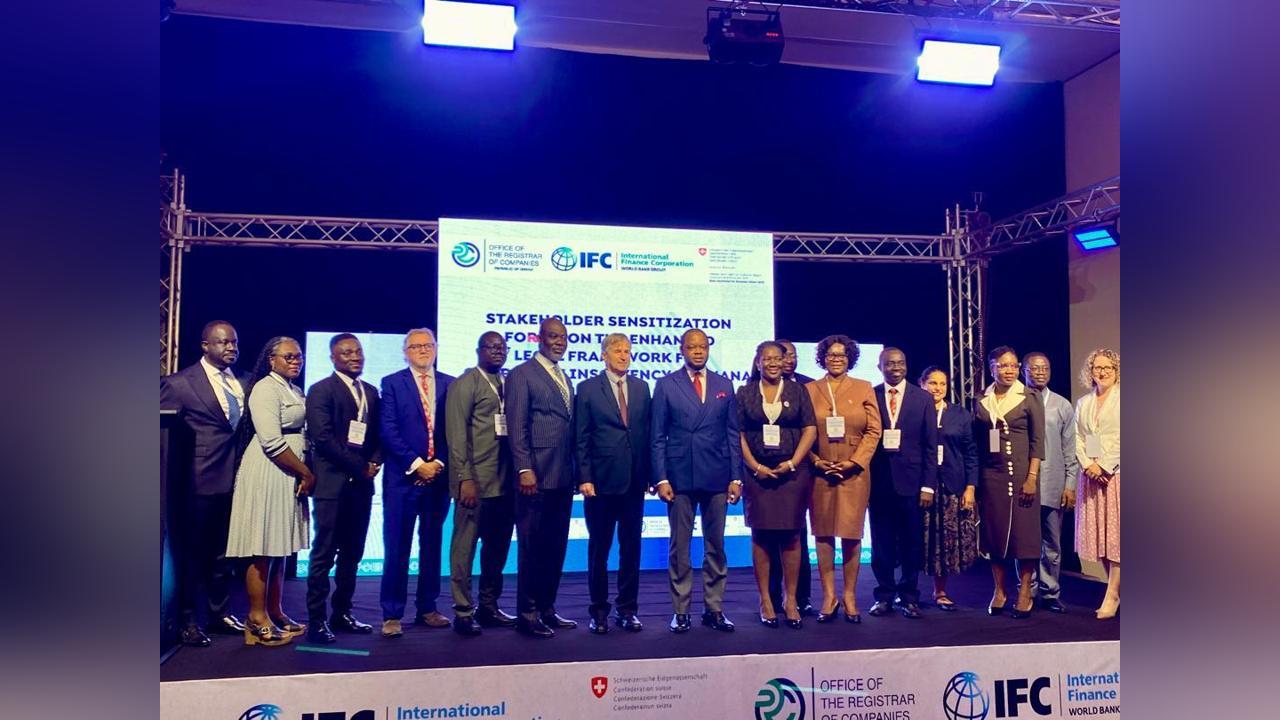Africa-Press – Ghana. Dr Justice Srem-Sai, Deputy Attorney-General has urged business stakeholders to ensure the success of Ghana’s corporate insolvency and restructuring framework to enhance financial stability and investor confidence.
He said the Corporate Insolvency and Restructuring Act (CIRA), 2020 (Act 1015), represented a landmark reform in Ghana’s legal and economic architecture, providing a fair, predictable, and growth-oriented environment for businesses.
“As we consolidate implementation, we must remain attentive to emerging challenges. Insolvency is not merely a legal process; it is an economic and social one.”
“Stakeholders must therefore adopt a proactive approach that emphasises early intervention, corporate governance, and financial discipline,” he said.
Dr Srem-Sai, who is also the deputy Minister of Justice, made the call on Wednesday in Accra, whilst delivering the keynote address at a Stakeholder Sensitisation Forum on the Enhanced Legal Framework for Corporate Insolvency in Ghana.
The forum, jointly organised by the Office of the Registrar of Companies (ORC) and the International Finance Corporation (IFC), was held on the theme: “Strengthening Business Recovery and Creditor Confidence through Ghana’s Corporate Insolvency Regime.”
The Deputy Attorney-General underscored the need for enhanced public awareness, particularly among small and medium enterprises (SMEs), noting that many were still unaware of the opportunities the Act provided for early restructuring and recovery.
“Through forums such as this, we can demystify insolvency, promote compliance, and build a culture of financial responsibility,” he said.
He also called for stronger coordination among regulators, practitioners, and the judiciary to ensure that the insolvency regime evolved in line with global best practices.
Dr Srem-Sai said before the enactment of Act 1015, Ghana’s insolvency regime under the Companies Act, 1963 (Act 179) was fragmented and outdated, often resulting in liquidation and job losses rather than business recovery.
He noted that the weaknesses of that regime contributed to systemic challenges within the financial sector, as banks carried non-performing loans with limited recovery prospects.
“CIRA, 2020 introduces a modern legal infrastructure that aligns with international best practice, particularly the United Nations Commission on International Trade Law (UNCITRAL) Legislative Guide on Insolvency Law,” he said.
The Deputy Attorney-General explained that the Act established formal processes for administration and restructuring, professionalised insolvency practice through licensed practitioners, strengthened creditor rights, and introduced cross-border cooperation provisions.
He said the implementation of the Act enhanced financial sector stability by improving loan recovery prospects, maintaining employment, and building investor confidence.
“The effectiveness of Act 1015 depends not only on its legal text but on how it is implemented,” he said, commending the ORC for its efforts in licensing practitioners, developing guidelines, and conducting capacity-building programmes.
Dr Srem-Sai reaffirmed the Attorney-General’s commitment to collaborating with the ORC, IFC, SECO, Bank of Ghana, the Ghana Association of Restructuring and Insolvency Advisors (GARIA), and the Judicial Service to ensure consistent interpretation and enforcement of the law.
Mr David Kudoadzi, Chairman of the ORC Governing Board, said the enactment of the Corporate Insolvency and Restructuring Act, 2020 (Act 1015), and its amendment (Act 1031), marked a significant shift from liquidation to business rescue, aligning Ghana with global standards.
He said the recent passage of the Corporate Insolvency and Restructuring Regulations, 2025 (L.I. 2502), had operationalized the Act by detailing solvency tests, practitioner standards, and digital participation mechanisms.
“While the Act provides the ‘what,’ these Regulations provide the ‘how’.” Mr Kudoadzi said.
He said the ORC, under the Registrar’s leadership, had licensed practitioners, developed manuals, promoted public education, and supported judicial training to strengthen the new insolvency regime.
However, he acknowledged that awareness remained low, especially among SMEs, and called for a collective effort to change the perception of insolvency from failure to recovery.
“A strong insolvency framework is both a legal and economic necessity; it protects jobs, secures creditor rights, stabilises finance, and builds investor confidence.” Mr Kudoadzi said.
The forum brought together regulators, legal and financial professionals, insolvency practitioners, and business leaders to deepen understanding of the Act and promote coordinated implementation of Ghana’s corporate recovery framework.
For More News And Analysis About Ghana Follow Africa-Press







